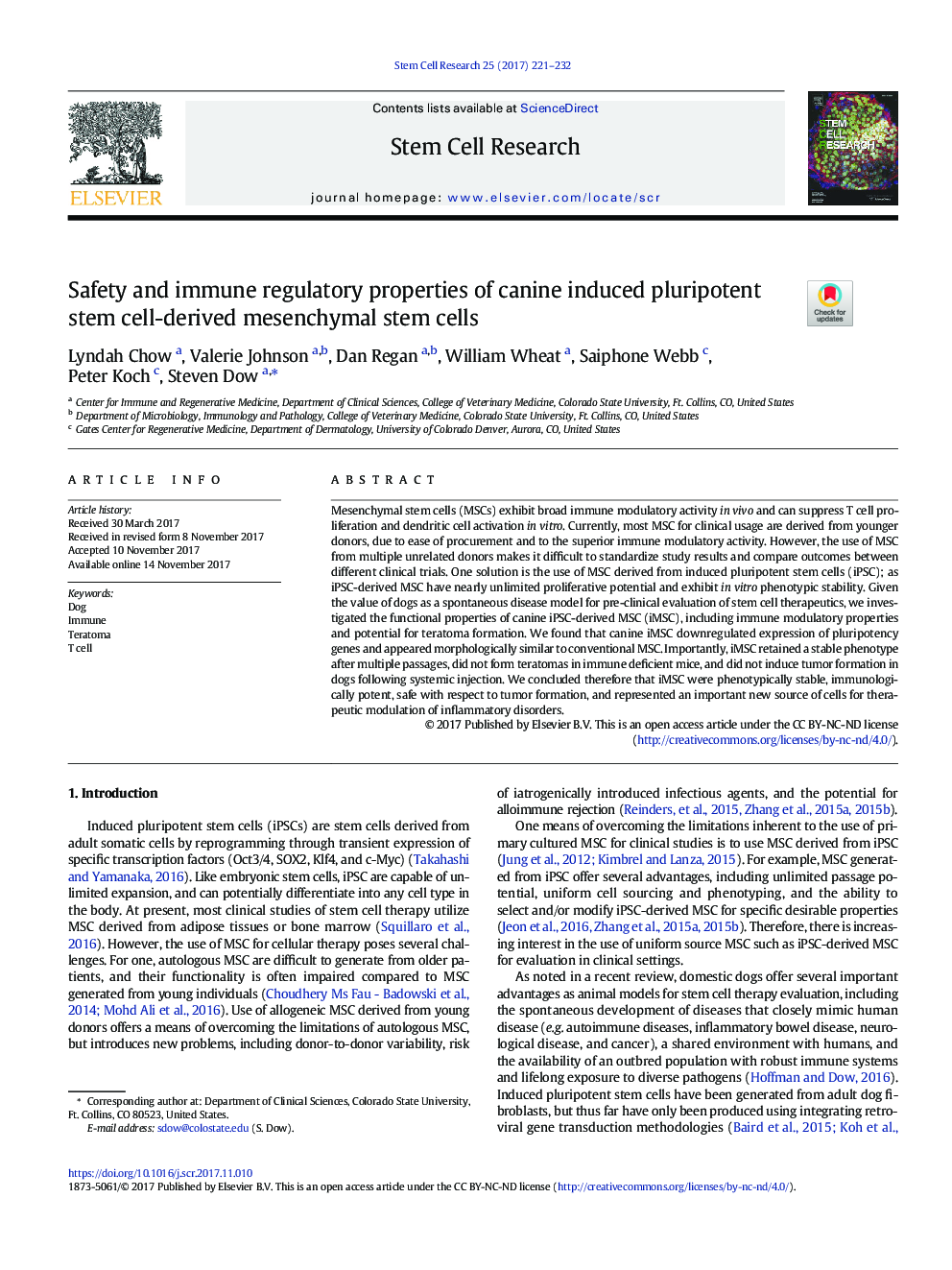| Article ID | Journal | Published Year | Pages | File Type |
|---|---|---|---|---|
| 8425763 | Stem Cell Research | 2017 | 12 Pages |
Abstract
Mesenchymal stem cells (MSCs) exhibit broad immune modulatory activity in vivo and can suppress T cell proliferation and dendritic cell activation in vitro. Currently, most MSC for clinical usage are derived from younger donors, due to ease of procurement and to the superior immune modulatory activity. However, the use of MSC from multiple unrelated donors makes it difficult to standardize study results and compare outcomes between different clinical trials. One solution is the use of MSC derived from induced pluripotent stem cells (iPSC); as iPSC-derived MSC have nearly unlimited proliferative potential and exhibit in vitro phenotypic stability. Given the value of dogs as a spontaneous disease model for pre-clinical evaluation of stem cell therapeutics, we investigated the functional properties of canine iPSC-derived MSC (iMSC), including immune modulatory properties and potential for teratoma formation. We found that canine iMSC downregulated expression of pluripotency genes and appeared morphologically similar to conventional MSC. Importantly, iMSC retained a stable phenotype after multiple passages, did not form teratomas in immune deficient mice, and did not induce tumor formation in dogs following systemic injection. We concluded therefore that iMSC were phenotypically stable, immunologically potent, safe with respect to tumor formation, and represented an important new source of cells for therapeutic modulation of inflammatory disorders.
Related Topics
Life Sciences
Biochemistry, Genetics and Molecular Biology
Biotechnology
Authors
Lyndah Chow, Valerie Johnson, Dan Regan, William Wheat, Saiphone Webb, Peter Koch, Steven Dow,
